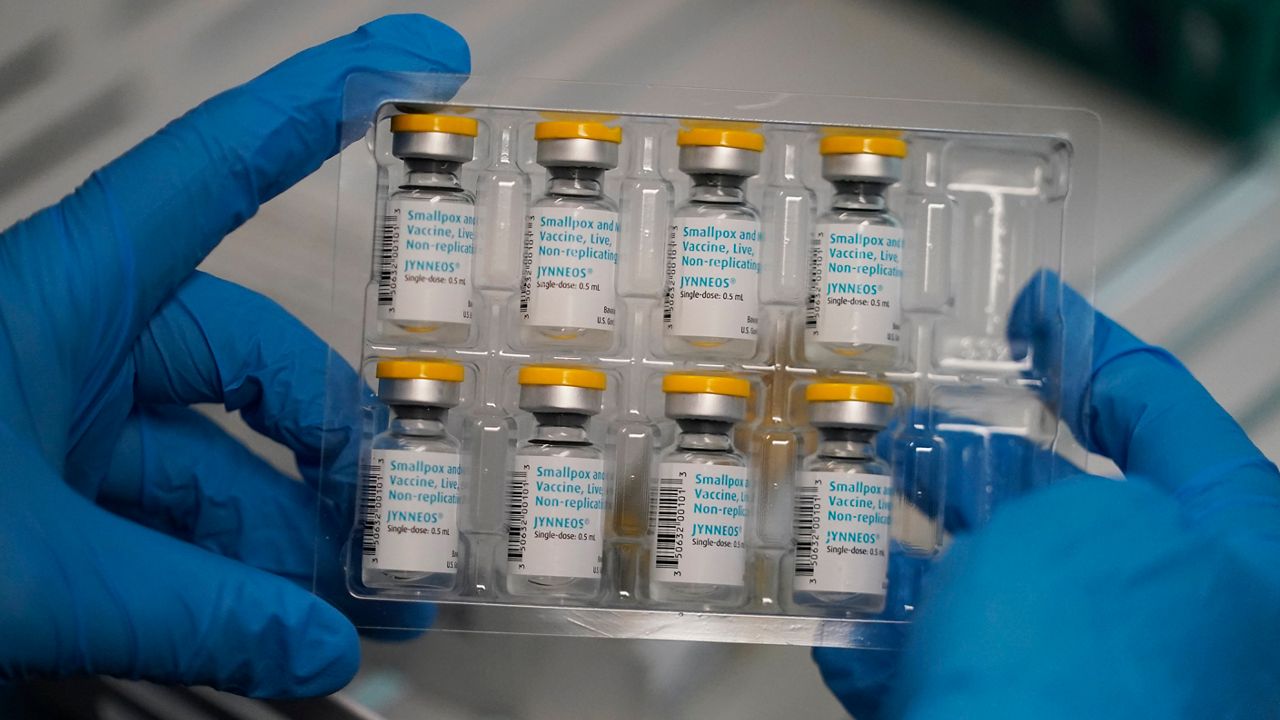LOS ANGELES (CNS) — Los Angeles County next week will transition to a newly approved method of administering smaller doses of the monkeypox vaccine, a move that officials say will lead to a five-fold increase in the availability of shots locally.
What You Need To Know
- Making the change is designed to stretch the limited of supply of the vaccine nationally, allowing smaller doses to be administered to more people
- Even with the increase in dosage availability, the county will only be able to fully vaccinated about 85,000 to 90,000 people
- The county to date has received roughly 43,290 doses of the vaccine, with nearly 29,000 more doses anticipated by later this month
- People who were eligible under the county's previous guidelines will remain eligible for the shots
Even with that increase, however, doses of the JYNNEOS vaccine will still remain extremely limited overall.
Dr. Rita Singhal, chief medical officer of the county Department of Public Health, said during an online media briefing that the county will align with the new dosing strategy authorized this week by the U.S. Food and Drug Administration.
The new method allows the vaccine to be administered between layers of skin, in what's called an intradermal injection. Previously, the vaccine was administered beneath the skin, in a subcutaneous injection. The intradermal method requires only roughly one-fifth the amount of vaccine required by the subcutaneous injection, authorities said.
Making the change is designed to stretch the limited of supply of the vaccine nationally, allowing smaller doses to be administered to more people.
Singhal said changing the strategy means that Los Angeles County will automatically see a five-fold increase in the number of doses it can offer. Since the vaccine is a two-dose regimen — with the shots traditionally administered 28 days apart — second doses will become more readily available, she said, and more people will likely become available for the initial shot.
She noted, however, that even with the increase in dosage availability, the county will only be able to fully vaccinated about 85,000 to 90,000 people, or roughly half the number currently seen as being at high risk.
The county to date has received roughly 43,290 doses of the vaccine, with nearly 29,000 more doses anticipated by later this month. Of the doses already received, nearly 32,000 have already been administered through various providers, and another 11,000 are likely to be administered by Sunday, Singhal said.
As of Thursday, the county has identified 738 confirmed or likely cases of monkeypox, roughly double the number from 12 days ago, Singhal said. Another 33 cases have been identified in Long Beach and eight in Pasadena — cities that have their own health departments separate from the county.
Virtually all of the cases have been in men, the vast majority of them gay or bisexual.
The county has simplified its previously complex system for determining who is eligible to receive a monkeypox vaccine. The shots are now available to any gay or bisexual men or transgender people aged 18 and older who have had multiple or anonymous sex partners in the previous 14 days.
People who were eligible under the county's previous guidelines will remain eligible for the shots.
The previous guidelines made shots available to people confirmed by the Department of Public Health to have had high- or immediate-risk contact with a known monkeypox patient, and to people who attended an event or visited a venue where there was a high risk of exposure to a confirmed case.
Shots were also available for gay and bisexual men and transgender people with a diagnosis of rectal gonorrhea or early syphilis within the past year. Also eligible for the shots are gay or bisexual men or transgender people who are on HIV pre-exposure prophylaxis, or PrEP, or who attended or worked at a commercial sex venue or other venue where they had anonymous sex or sex with multiple partners — such as at a sauna, bathhouse or sex club — in the past 21 days.
Monkeypox is generally spread through intimate skin-to-skin contact, resulting from infectious rashes and scabs, though respiratory secretions and bodily fluids exchanged during extended physical episodes, such as sexual intercourse, can also lead to transmission, according to the CDC. It can also be transmitted through the sharing of items such as bedding and towels.
Symptoms include fresh pimples, blisters, rashes, fever and fatigue. There is no specific treatment. People who have been infected with smallpox, or have been vaccinated for it, may have immunity to monkeypox.
According to health officials, the vaccine can prevent infection if given before or shortly after exposure to the virus.
More information is available online at ph.lacounty.gov/monkeypox.



